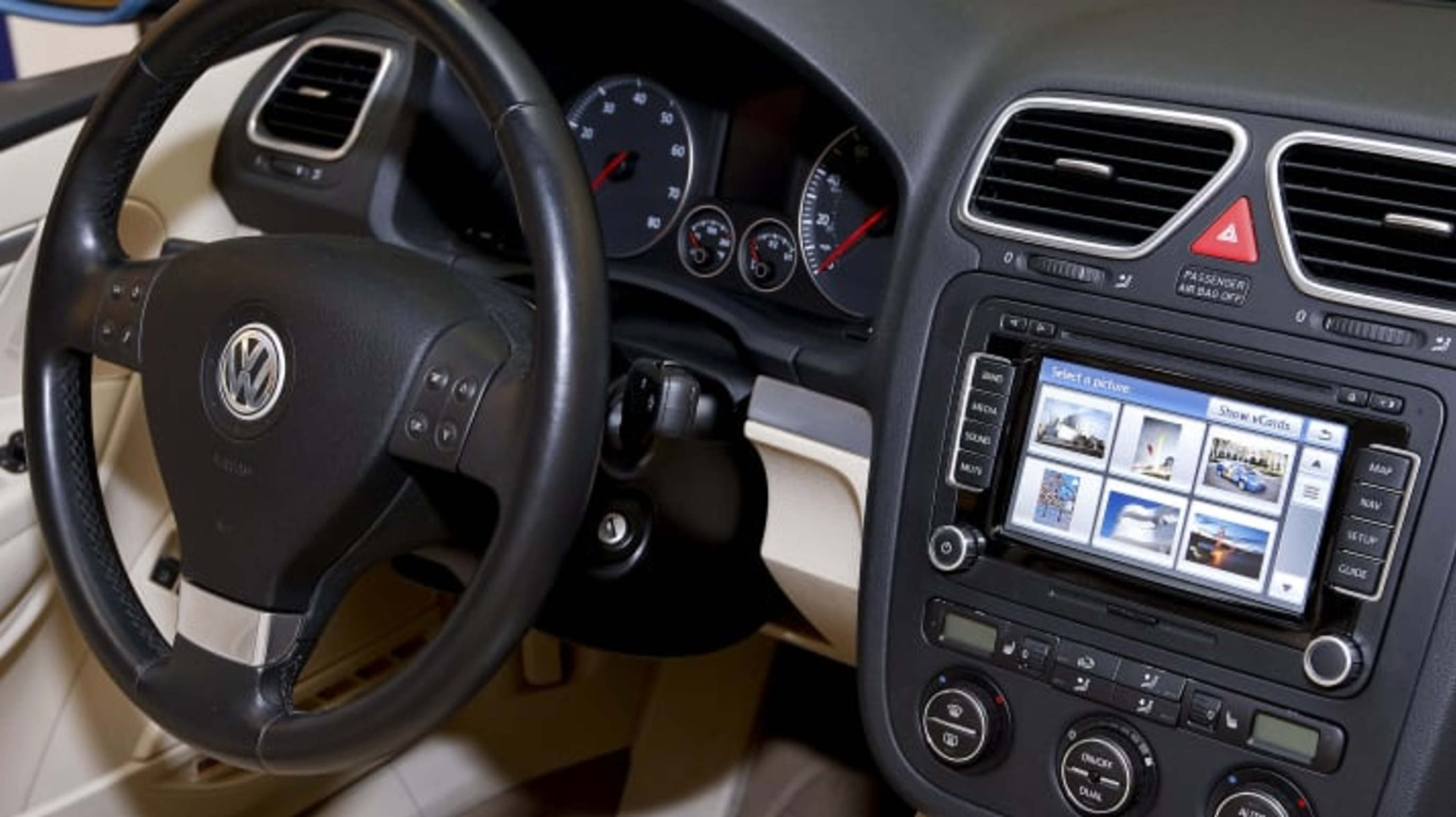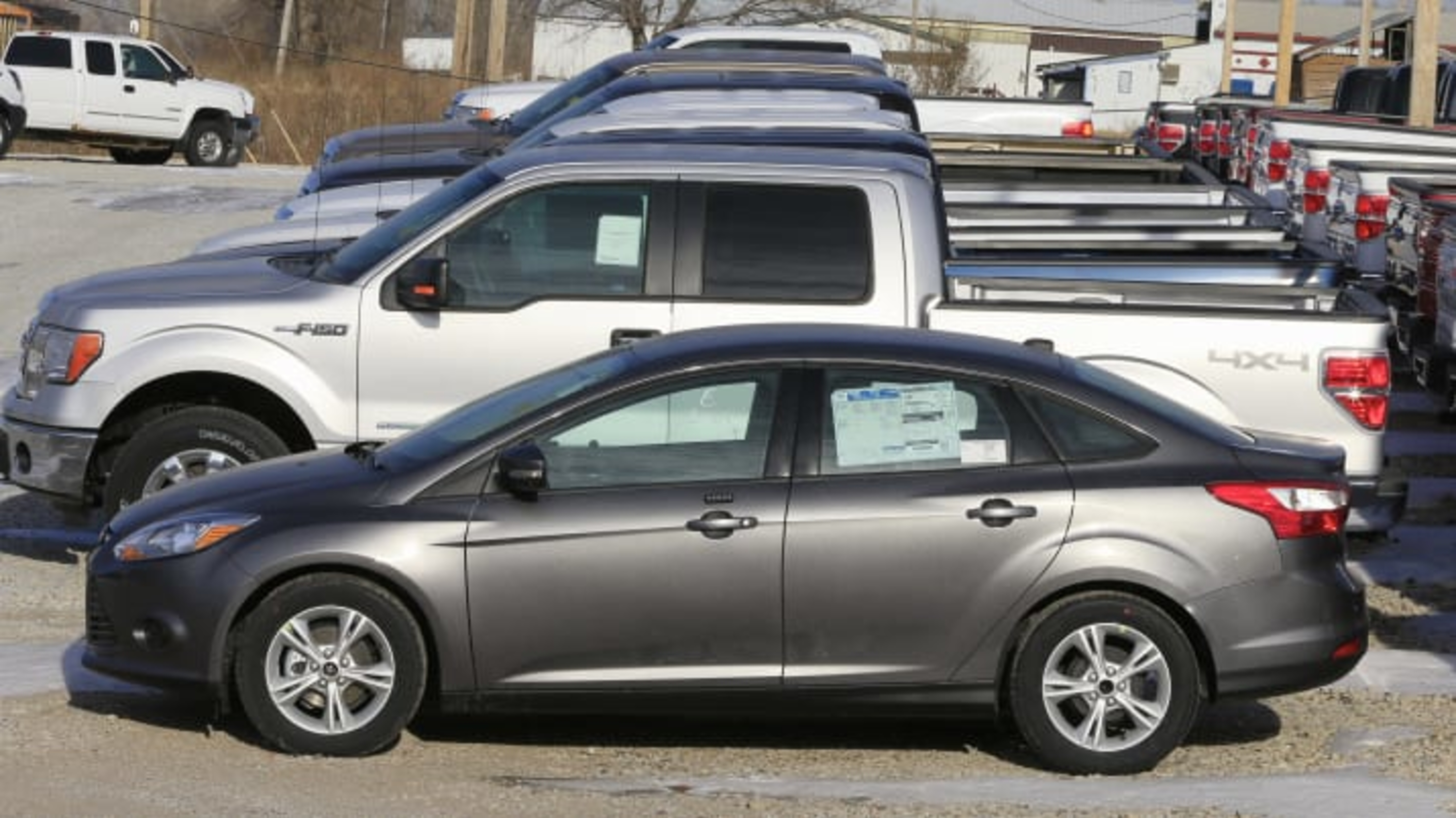You remember Rikk Wilde. The Chevrolet regional manager became an immediate sensation last fall when he stammered through his World Series presentation and delivered his now-famous "technology and stuff" catchphrase to describe the automaker's latest offerings.
As it turns out, he's not the only car guy struggling to offer more specifics on automotive technology.
Car dealers and salespeople can't keep pace with the onslaught of infotainment features flowing into new cars. Today's infotainment systems, which provide smart-phone integration, turn-by-turn navigation and endless audio choices, contain an average of 233 features each, says global automotive research firm SBD. When salespeople try to explain how they all work to new customers, their knowledge base is often inadequate.
"It's one thing to say you have HD radio or Pandora, but a person should be able to say why it's different than the three other cars you're looking at from a competitive perspective," said Jeffrey Hannah, director of North America for SBD.
It's a problem that could continue to grow. Millennials comprise a growing percentage of today's car buyers, and they're arriving at dealerships with an expectation that infotainment technology will be easy and intuitive. They are often greeted by inexperienced salespeople: On average, 35 percent of salespeople turn over on an annual basis, according to the National Automobile Dealers Association.
Widespread Trouble
Car buyers are confused. Sixty percent of respondents in the latest automotive reliability survey conducted by Consumer Reports say they've had trouble using these systems in their first weeks of ownership. That's a higher percentage than any other vehicle component. In the same breath, almost half of the same customers who reported initial difficulty told the magazine they became "more proficient over time" in using their infotainment system.
Those results suggest there's a prime opportunity for dealers and their sales people to play a prominent role in educating car buyers. Yet that's not happening, because salespeople are inundated with information on product launches, fuel economy and towing capacity before they even get to the intricacies of infotainment.

At NADA's annual conference last week, the challenges brought by infotainment's rise were a big topic. Dealers discussed the difficulty of meeting demands from car companies and customer expectations – both of which can conflict with infotainment education. OEMs are pressing dealerships to decrease their average transaction time. Likewise, customers besieged with paperwork don't want to spend any longer than necessary at the dealership. Even the most helpful and knowledgeable of salespeople face an uphill battle.
"You have salespeople who are incentivized to sell cars, not technology," Hannah says. "If they can upsell insurance, that's much more lucrative than hooking up someone's Bluetooth."
Problems Vary By Brand
SBD and Gamivation conducted a focus-group study last year, and like Consumer Reports, found many testers had trouble using infotainment systems or apps that connect to them. Asked if they had needed support to perform a basic task, like entering a destination or finding a radio station, 83 percent of Mercedes-Benz DriveStyle app testers answered yes. On the low end, 57 percent of Chrysler UConnect users and 52 percent of Nissan Connect app users answered yes.
"Some brands and dealerships are doing better than others," said Gary Tucker, CEO of DealerRater.com, a website on which 1.7 million car buyers have reviewed their dealership experiences. "There are a lot of dimensions to this challenge. You have brands like Cadillac, with older demographics, but they continue to pile this technology into the cars. Dealerships and OEMs are responding in different ways."
At their best, dealerships are offering evening or weekend classes to customers, letting them return to the dealerships to learn more about the systems. Often, they can offer two tiers of tutelage: one for tech-savvy customers and one for those who need basic help.
Some dealers post how-to videos on YouTube, which don't always match the precise setups of particular models. Some dealerships are experimenting with tech-support stations modeled after Apple's Genius bars. Others appoint or one or two people on their staffs to be the resident infotainment experts. Others let customer call center take the bulk of the questions. There's a lot at stake: the average customer is willing to spend $1,500 extra per vehicle on infotainment technology. Done right, a dealership stands to profit from a high-margin product.

Peering Ahead At Future
"This certainly is not going to stop," Tucker said. "The escalation of the digital technology is going to continue to climb at a very fast rate. So this is an opportunity for them to engage customers differently."
Exactly how those future relationships will look is uncertain. But Hannah sees them as a big opportunity for dealerships to combine different services – oil changes, software updates, other classes – into seamless programs that reward customer loyalty.
As automotive cyber security morphs from an industry-specific concern into something that concerns mainstream drivers, he thinks that could provide dealers with another way to differentiate their service.
"You think of all those people touching something with potentially dire consequences, so there's an opportunity to say, "Are you going to trust any old shop to plug something into your car?" he said. "They're probably not going to be as secure as a dealership."
As it turns out, he's not the only car guy struggling to offer more specifics on automotive technology.
Car dealers and salespeople can't keep pace with the onslaught of infotainment features flowing into new cars. Today's infotainment systems, which provide smart-phone integration, turn-by-turn navigation and endless audio choices, contain an average of 233 features each, says global automotive research firm SBD. When salespeople try to explain how they all work to new customers, their knowledge base is often inadequate.
"It's one thing to say you have HD radio or Pandora, but a person should be able to say why it's different than the three other cars you're looking at from a competitive perspective," said Jeffrey Hannah, director of North America for SBD.
It's a problem that could continue to grow. Millennials comprise a growing percentage of today's car buyers, and they're arriving at dealerships with an expectation that infotainment technology will be easy and intuitive. They are often greeted by inexperienced salespeople: On average, 35 percent of salespeople turn over on an annual basis, according to the National Automobile Dealers Association.
Widespread Trouble
Car buyers are confused. Sixty percent of respondents in the latest automotive reliability survey conducted by Consumer Reports say they've had trouble using these systems in their first weeks of ownership. That's a higher percentage than any other vehicle component. In the same breath, almost half of the same customers who reported initial difficulty told the magazine they became "more proficient over time" in using their infotainment system.
Those results suggest there's a prime opportunity for dealers and their sales people to play a prominent role in educating car buyers. Yet that's not happening, because salespeople are inundated with information on product launches, fuel economy and towing capacity before they even get to the intricacies of infotainment.

At NADA's annual conference last week, the challenges brought by infotainment's rise were a big topic. Dealers discussed the difficulty of meeting demands from car companies and customer expectations – both of which can conflict with infotainment education. OEMs are pressing dealerships to decrease their average transaction time. Likewise, customers besieged with paperwork don't want to spend any longer than necessary at the dealership. Even the most helpful and knowledgeable of salespeople face an uphill battle.
"You have salespeople who are incentivized to sell cars, not technology," Hannah says. "If they can upsell insurance, that's much more lucrative than hooking up someone's Bluetooth."
Problems Vary By Brand
SBD and Gamivation conducted a focus-group study last year, and like Consumer Reports, found many testers had trouble using infotainment systems or apps that connect to them. Asked if they had needed support to perform a basic task, like entering a destination or finding a radio station, 83 percent of Mercedes-Benz DriveStyle app testers answered yes. On the low end, 57 percent of Chrysler UConnect users and 52 percent of Nissan Connect app users answered yes.
"Some brands and dealerships are doing better than others," said Gary Tucker, CEO of DealerRater.com, a website on which 1.7 million car buyers have reviewed their dealership experiences. "There are a lot of dimensions to this challenge. You have brands like Cadillac, with older demographics, but they continue to pile this technology into the cars. Dealerships and OEMs are responding in different ways."
At their best, dealerships are offering evening or weekend classes to customers, letting them return to the dealerships to learn more about the systems. Often, they can offer two tiers of tutelage: one for tech-savvy customers and one for those who need basic help.
Some dealers post how-to videos on YouTube, which don't always match the precise setups of particular models. Some dealerships are experimenting with tech-support stations modeled after Apple's Genius bars. Others appoint or one or two people on their staffs to be the resident infotainment experts. Others let customer call center take the bulk of the questions. There's a lot at stake: the average customer is willing to spend $1,500 extra per vehicle on infotainment technology. Done right, a dealership stands to profit from a high-margin product.

Peering Ahead At Future
"This certainly is not going to stop," Tucker said. "The escalation of the digital technology is going to continue to climb at a very fast rate. So this is an opportunity for them to engage customers differently."
Exactly how those future relationships will look is uncertain. But Hannah sees them as a big opportunity for dealerships to combine different services – oil changes, software updates, other classes – into seamless programs that reward customer loyalty.
As automotive cyber security morphs from an industry-specific concern into something that concerns mainstream drivers, he thinks that could provide dealers with another way to differentiate their service.
"You think of all those people touching something with potentially dire consequences, so there's an opportunity to say, "Are you going to trust any old shop to plug something into your car?" he said. "They're probably not going to be as secure as a dealership."


Sign in to post
Please sign in to leave a comment.
Continue